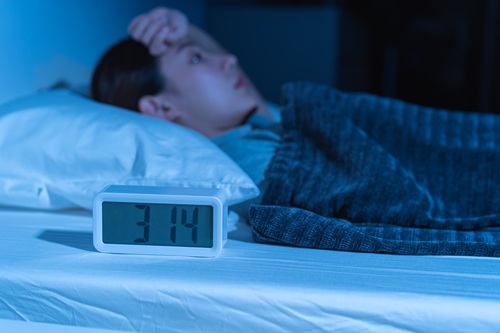Insomnia is one of the most prevalent sleep disorders, affecting millions of people worldwide. It disrupts a person's ability to fall asleep, stay asleep, or wake up feeling refreshed. Chronic insomnia disorder can negatively impact physical health, mental well-being, and daily productivity. Understanding its causes, symptoms, and treatments is vital to managing this condition effectively.

Insomnia is a sleep disorder characterized by persistent difficulty in initiating or maintaining sleep, even when the opportunity to sleep exists. While occasional sleeplessness is common, chronic insomnia is a serious condition that can interfere with everyday life.
Acute Insomnia This type of insomnia is temporary and often linked to a specific stressful situation, such as exams, work deadlines, or significant life changes like moving or losing a loved one. It usually lasts for a few days to a few weeks and tends to resolve on its own once the stressor is managed or removed. Acute insomnia can also be caused by changes in routine, such as traveling across time zones or recovering from an illness.
Chronic Insomnia Chronic insomnia is a long-term condition where difficulty falling or staying asleep occurs at least three times a week for three months or more. Unlike acute insomnia, it may not have an immediate cause and is often tied to ongoing issues such as chronic stress, mental health conditions like anxiety or depression, or physical ailments like chronic pain. Chronic insomnia requires targeted intervention to address its root causes and improve sleep quality.
Recognizing the symptoms of insomnia disorder is essential for timely intervention. Common insomnia symptoms include:
For those with chronic sleep disorders, symptoms can exacerbate over time, leading to a significant decline in quality of life.
Understanding the causes of sleeplessness can guide treatment strategies.
Diagnosing insomnia disorder involves a comprehensive evaluation by a healthcare provider.
Steps in Diagnosis
Medical History
Your doctor will ask about the duration, frequency, and severity of your trouble sleeping.
Questions about lifestyle habits, stress levels, and diet can identify contributing factors.
Physical Examination
A physical exam helps detect underlying conditions such as chronic pain or GERD.
The doctor may palpate the abdomen or perform neurological tests to rule out related health issues.
Specialized Tests
Sleep Diary: Recording sleep patterns over several weeks provides valuable insights.
Polysomnography: This overnight sleep study monitors brain waves, heart rate, and breathing.
Blood Tests: Identifies hormonal imbalances or nutritional deficiencies.
Effective insomnia treatment focuses on addressing the root causes while improving sleep habits.
Lifestyle Adjustments
1. Dietary Changes:
2. Sleep Hygiene:
3. Stress Management:
Medications
1. Over-the-Counter Options: Melatonin supplements are often recommended for short-term relief.
2. Prescription Medications: Insomnia medication such as sedatives or hypnotics may be prescribed for severe cases.
3. Best medication for insomnia: Always consult a doctor to determine the most suitable option based on medical history and symptoms.
Cognitive Behavioral Therapy for Insomnia (CBT-I)
CBT-I is a highly effective treatment focusing on changing thoughts and behaviors that hinder sleep. Techniques include:
You should consult an insomnia doctor if:
Insomnia is a complex but manageable condition that affects physical health, mental well-being, and daily functioning. Whether caused by stress, medical conditions, or poor lifestyle choices, timely intervention and effective insomnia treatment can improve sleep quality and restore balance. If you’re experiencing chronic sleep disturbances, consult a neurologist—and if respiratory issues like sleep apnoea are a concern, a pulmonologist can evaluate and address any underlying breathing disorders—to reclaim restful nights.
What is the main cause of insomnia?
The main causes include stress, anxiety, medical conditions, or poor sleep hygiene.
What is the best thing for insomnia?
Practicing good sleep hygiene, using relaxation techniques, and seeking therapy or medication are effective remedies.
What does it feel like to have insomnia?
Insomnia feels like constant fatigue, difficulty concentrating, and persistent irritability due to poor-quality sleep.
How long can insomnia last?
Acute insomnia may last for a few days to weeks, while chronic insomnia persists for three months or more if left untreated.
With the right approach, individuals can overcome insomnia and enjoy better sleep health.